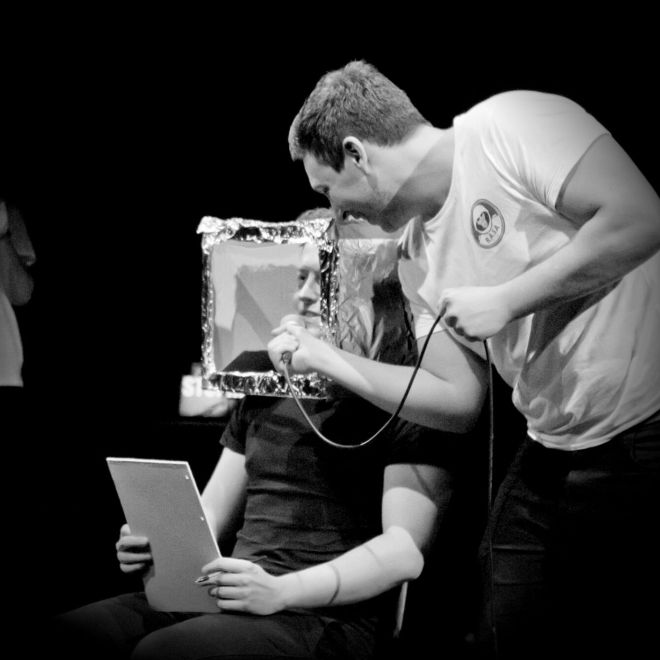
Can creationists be pro-science?
By James Reilly

If someone asked you the question: “What do creationists think about science?” It’d be quite understandable for you to answer: “Well, they must hate it.” After all, we define these people by their rejection of one of the most well-known scientific theories of all time. But beyond evolution itself, how do creationists view science in general? The first problem with answering this question is that it assumes creationists are a monolithic group of like-minded people, who all hold the same beliefs for the same reasons. In recent years, much work has been done to smash this monolith, and to rebuild the pieces into a more nuanced understanding of this group of individuals.
For many people, creationism seems like a distinctly American phenomenon. Perhaps this perception is due to continued media reporting on creationism in the more nuanced understanding of this group of individuals, or because America is the home of some of the most highly-funded advocacy groups. Nonetheless, recent historical work has documented the presence of creationism across the highly-funded advocacy groups.
In 2010, Peter Hildering and colleagues published results of conversations with ten Dutch Protestant Christians who all rejected evolution. Obviously this is a small group, so in no way are the results claimed to be representative, but where the study lacks in its representative nature, it benefits from the rich depth of exploration of each respondent’s attitudes. Hildering tried to analyse the respondents’ views using three public understanding of science paradigms or models: knowledge deficit, attitude deficit, and trust deficit. These approaches mirror developments in academic studies on the public understanding of science and the communication of science over the last quarter of a century, and each approach has its own benefits and drawbacks. One main criticism is that academics keep returning to the idea of a ‘deficit model’, where the public are seen as lacking some scientific knowledge, insight or attitude on a specific subject. Deficit model thinking suggests these shortcomings can be overcome by plugging the hole with a new initiative or method of communicating science. Other scholars argue that deficit approaches are necessary, but are not sufficient to understand all science communication contexts.
In a knowledge deficit model, issues can be resolved by education or raising the science literacy of the population. Once the public know more about science, so the idea goes, opposition to science will decrease. Critics argue that while some studies show people with more nuanced understanding of this group of individuals, on specific scientific issues there is no simple correlation. In the paradigm of an attitude deficit, the public’s opposition to science can be resolved by more contact with science, and these engagements will supposedly increase the public’s appreciation of scientific progress. Lastly, the trust deficit model argues that the public have become estranged from science and its institutions, but they are not to blame for this disconnect. To progress in a trust deficit model, science must make more of an effort to include the public in decision making and governance. This, it is suggested, will lead the public to feel a greater sense of ownership of science and scientific knowledge.
So, how did Hildering’s analysis of Dutch Protestant Christian’s rejection of evolution using these paradigms fare? Firstly, the respondents had a wide range of scientific knowledge of evolution. Some of them holding degrees in biology and accurately detailing the process of natural selection, while others described evolution as the development of animals from small to large. Due to the range of the participants’ scientific knowledge, a knowledge deficit proved insufficient to fully explain their rejection of evolution. Secondly, the attitude deficit was addressed. Hildering notes that all respondents were unanimously positive about science. But how can someone be pro-science and anti-evolution? This was achieved by all respondents not viewing evolution as a ‘real science’, a sentiment which was echoed when looking into a possible trust deficit. The respondents didn’t distrust science in general, only biological evolution, as they viewed it as a ‘non-science’. When discussing evolutionary scientists, most thought that they were honest and sincere in their work, but think them to be mistaken in the conclusions they draw from their research. Interestingly, despite their trust in science, half of the respondents thought that research which is critical of evolution is actively kept out of journals.
Ultimately, all of the Dutch Protestant Christians interviewed rejected evolution because of an a priori decision to trust the Bible over scientific findings. But in their own view they are not anti-science. They had ‘othered’ evolution as a non-science, and therefore could retain a positive attitude to science in general. So, to come back to the original question: “What do creationists think about science?” Well, in the case of Hildering and the Dutch Protestant Christians, they can be quite positive.
For the original paper by Hildering et al. please see:

James Riley is a postdoctoral research fellow at the University of Birmingham.
Interested in the interrelationship between science and society, he has a background in science communication and the public understanding of science. Learn more by reading his Research Profile.
He can be found on Twitter: @JamesIRiley
